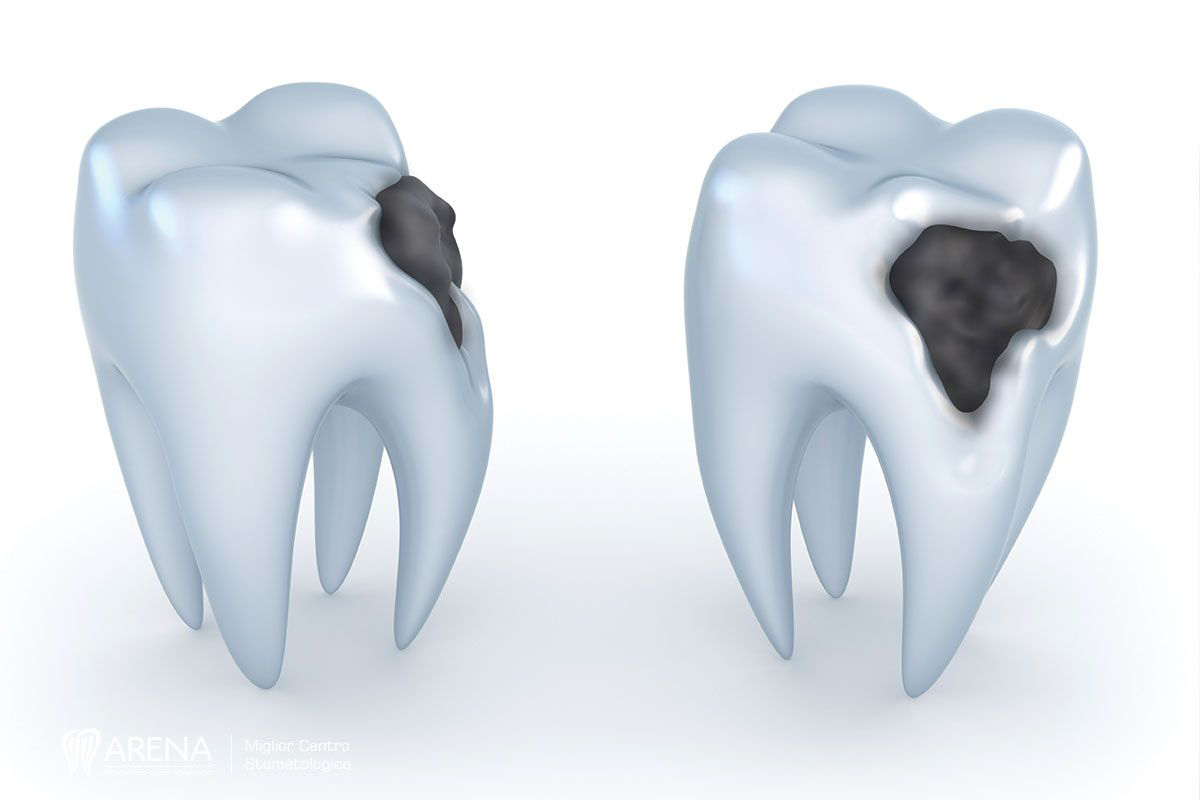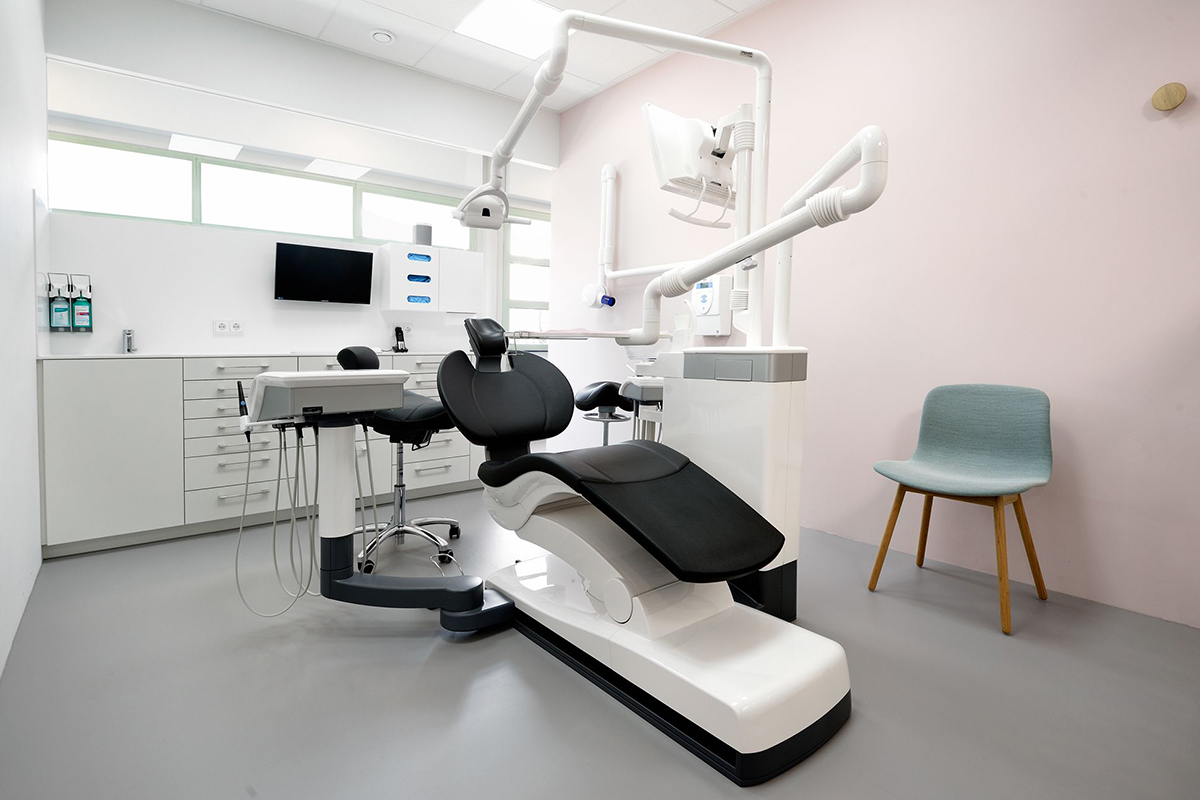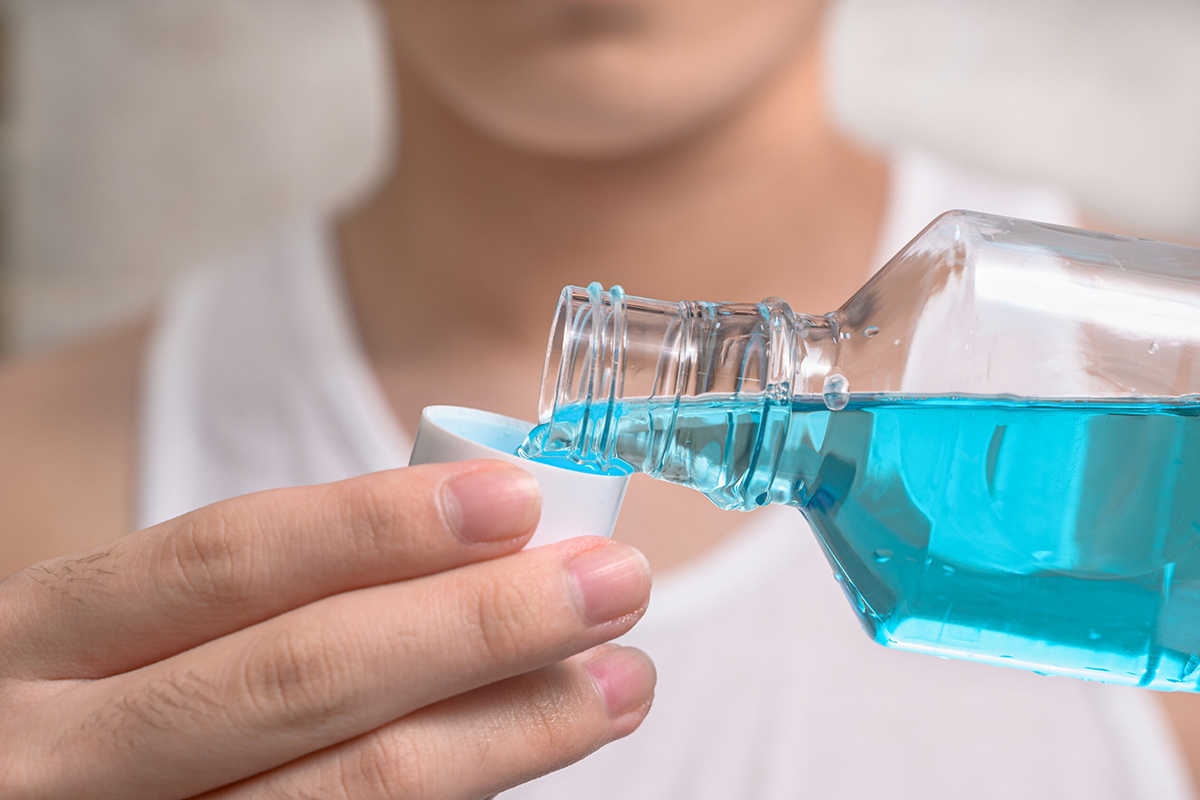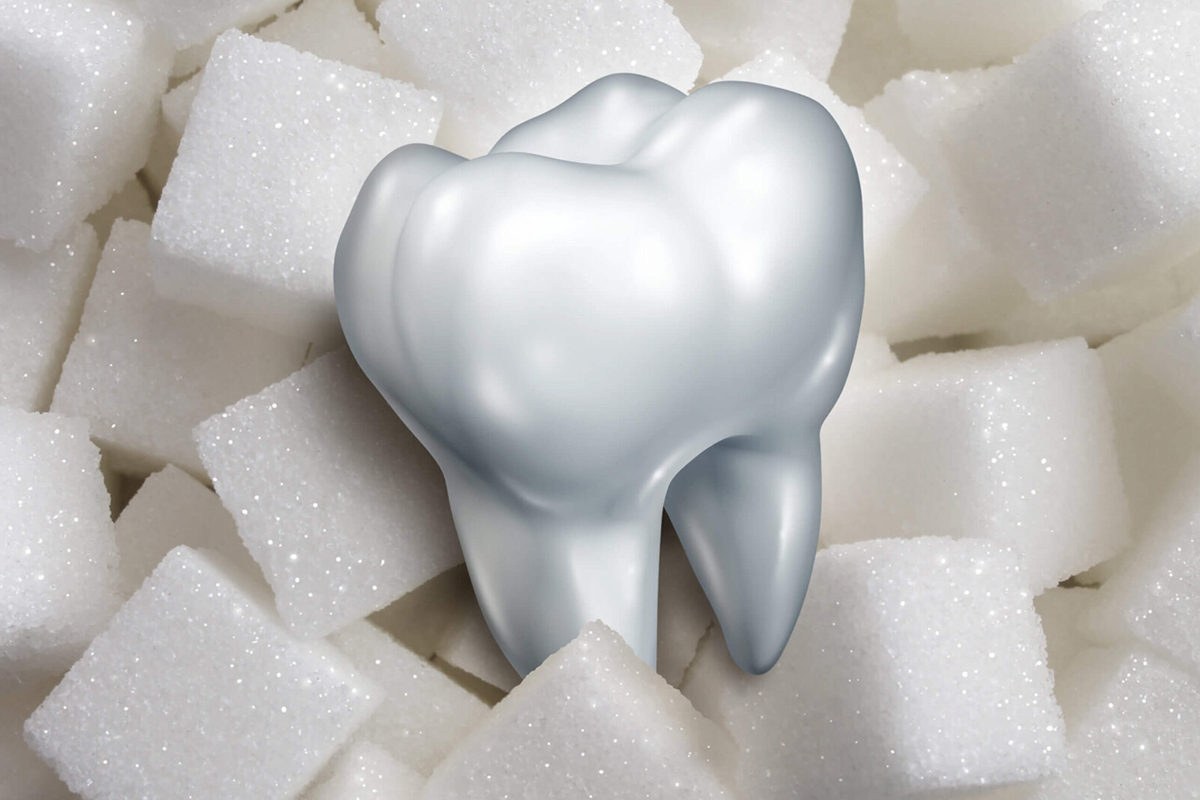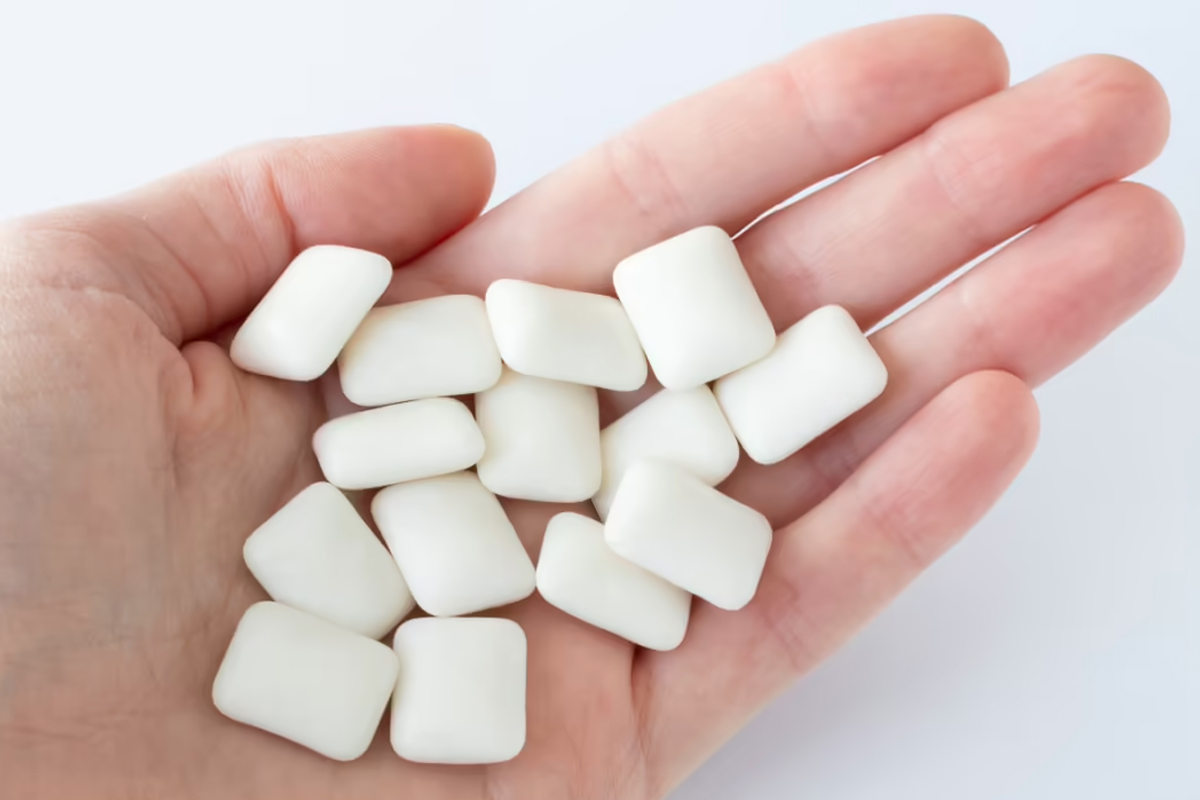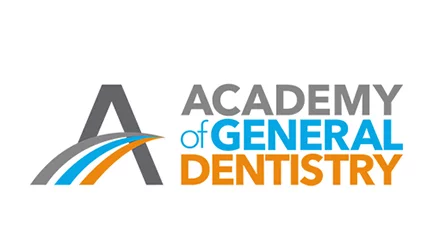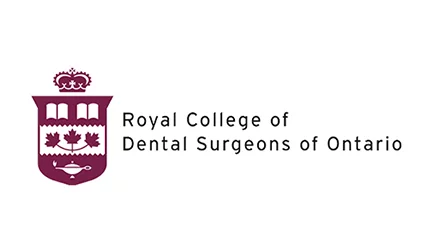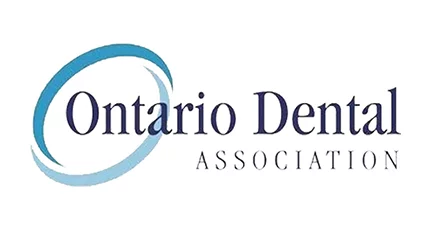DO CAVITIES CAUSE BAD BREATH? SYMPTOMS, CAUSES, AND TREATMENT
Many people wake up each day with bad breath. If bad breath, often called halitosis, affects your confidence and social interactions, it’s time to determine what’s causing it. Do cavities cause bad breath? Is your dental care routine effective and sufficient to prevent bad breath? Here’s what could be causing bad breath and what you can do to remedy it.
WHAT ARE CAVITIES?
Cavities, also called tooth decay, are damaged and weakened areas on the surface of your teeth. Bacteria in your mouth feed off sugars and starches in beverages and food items such as fruit, candy, cereals, bread, sodas, juices, and milk. As these carbohydrates are consumed, they create acids as a byproduct. The mixture of bacteria, acids, food particles, and saliva forms a highly sticky dental plaque that coats the teeth’s surfaces, dissolving the enamel and causing small holes.
Several factors can increase the likelihood of developing a cavity:
- Food choices and drinks: Consuming sugary or acidic foods and beverages can contribute to cavity formation.
- Poor oral hygiene: Lack of flossing and brushing can lead to plaque buildup.
- Low fluoride levels: Low levels of fluoride in your diet may contribute to a higher risk of cavities.
- Dry mouth: Reduced saliva production due to certain medications or medical conditions can create an environment conducive to cavity formation.
- Frequent snacking: Regular snacking, especially on sweet snacks, increases the risk of tooth decay.
- Irregular dental check-ups: Avoiding regular dental examinations could result in untreated cavities.
- Health conditions: Certain health issues, like acid reflux, may expose teeth to excessive acid, contributing to cavities.
- Genetics: Genetic factors may affect susceptibility to cavities.
- Lack of education: Inadequate knowledge of proper oral hygiene practices can lead to cavities.
WHAT CAUSES CAVITIES?
Cavities, also known as dental decay, result from harmful, acidogenic microbes, which convert sugar into acid. Acid lowers the pH and erodes the enamel on teeth. Species that cause cavities include Streptococcus mutants, Streptococcus sobrinus, Bifidobacterium dentium, and several Lactobacillus species, which are common in the mouth microbiome.
The risk of developing cavities is closely linked to the amount of acidogenic bacteria present. The bacteria produce acid by fermenting sugar within your saliva. That’s why your diet plays a crucial role in preventing cavities. Simple sugars like sucrose and fructose are more easily fermented than complex carbohydrates like amylose.
The fermentation of sugar by bacteria results in acid production as a byproduct.
Acids erode teeth’ enamel, and if left unchecked, they can begin to erode dentin, the deeper layer of the tooth. Reducing sugary foods can prevent tooth decay.
CAN CAVITIES CAUSE BAD BREATH?
While the cavity may not directly produce bad breath, there is a connection. As the cavity grows deeper, it forms small pockets or holes that allow bacteria to thrive, leading to bacteria growth and bad breath.
Because the cavity is a real opening in your tooth, it can trap food particles and trace amounts of liquid, encouraging bacterial growth. The cavity itself does not cause bad breath, but the bacteria do.
WHAT CAUSES BAD BREATH?
Bad breath, or halitosis, occurs when bacteria build up in the mouth. A study published in the Journal of Pharmacy & BioAllied Sciences (JPBS) explains that when certain bacteria in the mouth interact with proteins in saliva, they produce volatile sulfur compounds. These sulfur compounds create unpleasant odors. The JPBS review identifies several common causes of bad breath:
- Poor oral hygiene leads to trapped food particles in the mouth
- Gum diseases like gingivitis and periodontitis
- Bacterial growth on the tongue
- Issues with the ear, nose, or throat, such as tonsillitis or sinus infections
- Dry mouth
- Lifestyle choices, including smoking and alcohol consumption
WHAT HAPPENS IF A CAVITY IS TOO DEEP?
To address severe cavities, a root canal is often the recommended treatment. A cavity reaching the tooth’s pulp can cause extreme discomfort and infection. A root canal is a dental procedure to save the tooth by removing the affected pulp and cleaning out the space. After cleaning, the area is sealed to prevent further infection.
Although a root canal might sound daunting, it is typically performed under local anesthesia to ensure comfort during the procedure. Root canals alleviate discomfort, prevent infection, and preserve natural teeth.
HOW TO TREAT BAD BREATH CAUSED BY TOOTH DECAY?
Maintaining a proper oral hygiene routine can help reduce bad breath linked to cavities and may also lower the chances of future tooth decay. Here are some tips you can follow:
- Brush your teeth twice a day using fluoride toothpaste.
- Spend 2 minutes brushing each time.
- Floss daily to remove food particles and plaque between your teeth.
- Rinse your mouth with a fluoride-based mouthwash.
- Cut down on sugary snacks and drinks.
- Eat crunchy, nutritious foods like apples and carrots.
- Keep yourself hydrated by drinking water regularly throughout the day.
- Chew sugar-free gum to combat dry mouth.
- Avoid using tobacco products.
Additionally, it is crucial to visit your dentist every six months for a professional cleaning and checkup. Dentists can spot cavities in their early stages and offer advice to help manage persistent bad breath.
CAN FILLING CAVITIES HELP IMPROVE BAD BREATH?
After getting cavities filled, many people notice an improvement in their bad breath. When a dentist finds a cavity, they may suggest treatments to prevent it from worsening. Early-stage cavities might be treated with fluoride to halt decay, while more serious cases require filling.
OTHER CAUSES OF CHRONIC BAD BREATH:
If bad breath continues even after filling cavities or practicing good oral care, other factors could be to blame. Potential causes of long-lasting bad breath include:
- Dry mouth
- Mouth infections
- Gum disease (gingivitis)
- Braces, dentures, or other dental devices
- Certain foods like garlic and onions
- Smoking
- Alcohol use
- Diabetes
- Acid reflux
- Allergies
- Post-nasal drip
- Sinus infections
- Kidney disease
- Liver disease
If you’re still experiencing bad breath, it’s best to consult a healthcare provider to explore these possible causes.
REMEDIES TO COMBAT CAVITIES AND BAD BREATH:
Now that we’ve answered the question, “Do cavities cause bad breath?” Let’s explore options to stop it. Here are some effective treatments:
1. REGULAR BRUSHING AND FLOSSING:
Maintain a healthy mouth with consistent, thorough brushing and flossing. Use fluoride toothpaste and a soft-bristle toothbrush to clean at least twice daily. Daily flossing helps eliminate plaque and food residues between teeth.
2. VISIT YOUR DENTIST:
Ongoing dental evaluations are key to detecting and treating cavities promptly. Your dentist will examine your teeth thoroughly or take X-rays to assess and plan the required treatments. For example, fillings can prevent cavities from advancing and causing bad breath.
3. MOUTHWASH AND RINSES:
Antiseptic mouthwashes and rinses can reduce bacteria in your mouth and decrease bad breath. Look for products containing cetylpyridinium chloride or chlorhexidine.
4. STAY HYDRATED:
Drinking plenty of water throughout the day helps maintain saliva production, crucial for removing food particles and bacteria.
5. SUGAR CONTROL:
Limiting sugary foods and drinks can prevent cavities. Bacteria feed on sugars, producing acids that damage tooth enamel. Opt for a balanced diet rich in fruits, vegetables, lean proteins, and whole grains.
6. CHEW SUGAR-FREE GUM:
Chewing sugar-free gum can stimulate saliva production, neutralize acids, and help clean your mouth. Choose gums containing xylitol, a natural sweetener that inhibits bacterial growth.
7. MAINTAIN A BREATH-FRIENDLY SCHEDULE:
To ensure fresh breath, gently scrape your tongue with a tongue scraper. This, in addition to your regular brushing routine, helps eliminate plaque and bacteria.
TAKE CONTROL OF YOUR BREATH:
Cavities don’t directly produce bad breath, but they create an environment where bacteria can thrive, resulting in bad odors. To address this issue, maintain excellent oral hygiene and visit your dentist regularly to manage bad breath and uphold dental health. A well-maintained mouth results in fresher breath and a more confident smile. Be proactive about your oral hygiene and enjoy the benefits of fresh breath throughout the day!
If you’re concerned about bad breath or suspect you have cavities, don’t hesitate to schedule an appointment with a professional dental team. They specialize in comprehensive dental care and can provide personalized advice to address bad breath and keep your smile healthy.
TAKEAWAY:
Persistent bad breath is the third most common reason people seek dental services. Many factors contribute to bad breath. If you show other symptoms of dental cavities, a dentist can assess for plaque-related issues.
Plaque removal and cavity treatment are effective ways to address bad breath. Regular flossing and brushing can also help maintain these treatments at home. If improved oral hygiene doesn’t resolve your bad breath, consult your dentist to explore further benefits.


